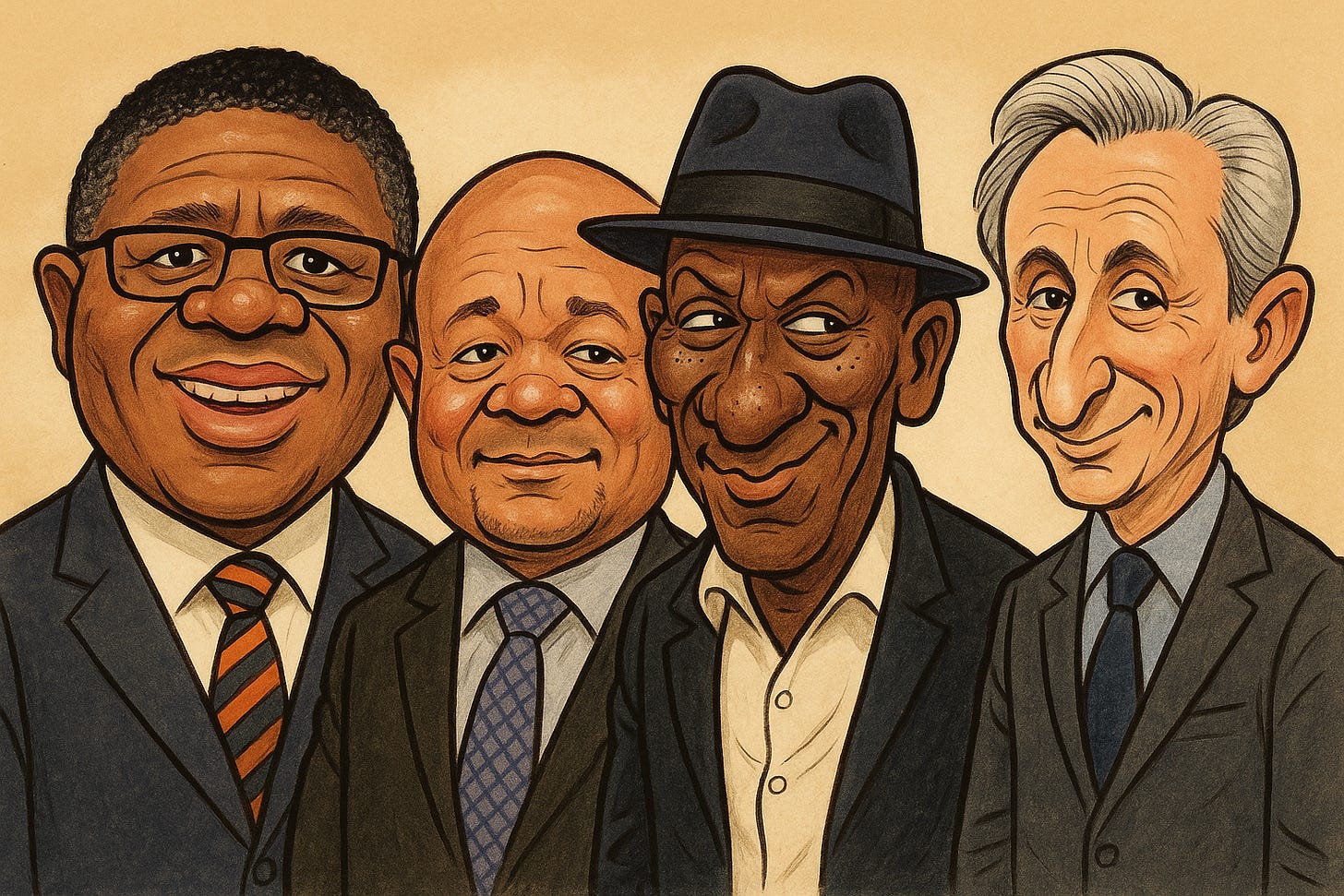Why South Africa Needs Local Policing
Crime is local, so policing must be too.
History lingers in South African institutions. Nowhere is this more obvious than in South Africa’s police. The structure of the South African Police Service (SAPS) is not an accidental administrative design, nor the product of careful deliberation about how best to keep people safe. It is the heir of colonial centralisation, apartheid control and 1990s ANC angst.
When the new Constitution was signed in 1996, it carried many compromises. Some were noble and necessary, breaking from our past in an attempt to bind a fragile democracy together. Others were less inspired. Among the latter was the decision to retain a highly centralised police force. It was a decision rooted in fear of provinces breaking away (the ANC was particularly concerned about KwaZulu-Natal having its own police force under IFP control), fear of communities governing themselves in isolation, but above all it reflected the ANC’s deep-seated ideological commitment to centralisation and control.
And this ended up enfeebling the state’s ability to deliver one of the most basic democratic promises - safety.
Today the consequences of this centralisation are everywhere. SAPS detectives routinely carry caseloads in the hundreds. Conviction rates for firearm-related crimes hover in the single digits. Residents of Cape Flats townships learn, from childhood, the instinct to duck when gunshots ring out. Farmers in rural provinces know how long they might wait for a patrol car that never arrives. And yet, all of this dysfunction stems not only from scarce resources or corruption, but also from the belief that one police service directed from Pretoria can manage a country as diverse and extensive as South Africa.
In this regard South Africa is an outlier. Almost every other democracy, large or small, rich or poor, has embraced decentralised policing.
How Others Do It
Take the Anglo-American model. In the United States, law enforcement is layered. You have local police, county sheriffs, state troopers, and federal agencies. The American system is undoubtedly messy, so much so that its jurisdictional squabbles have become a Hollywood trope, the moment when the Feds walk in and local police have to stand down. But the advantage is local responsiveness. New York City, which has 36 000 police members serving just about 9 million people, doesn’t wait for Washington DC to send detectives when a murder occurs in Brooklyn. Police departments reflect the politics, resources, and culture of their communities.
In Britain, the tradition of the local constabulary remains intact. Each area has its own police force, funded and managed locally, though coordinated under national oversight for matters of terrorism or organised crime. The result is a culture of community policing that is far closer to the people it serves than any Pretoria-style bureaucracy could ever be.
Looking to Europe. Germany entrusts policing almost entirely to its Länder, the federal states. Each has its own police force, its own command structure, and its own strategy. National police exist, but their mandate is specifically focussed on border security, terrorism, crimes that cross Länder boundaries. The philosophy is that because crime is local, so policing must be too.
Even in Africa, federal or semi-federal systems like Nigeria and Kenya have acknowledged that the national government alone cannot police the complexity of sprawling societies. The devolution of policing powers has been messy, but it has allowed for greater responsiveness in urban centres and rural regions alike.
Japan provides yet another lesson. There, the National Police Agency sets broad policy, but the work is carried out by prefectural police forces. The balance is deliberate and ensures coordination where necessary but broadly has autonomy which is effective.
Why South Africa Stands Apart
Contrast all of these examples with South Africa. Here, the Constitution imagines three spheres of government (national, provincial, and local) yet in policing, power has been pulled tight into the hands of the national commissioner and the minister of police. Provinces may monitor. Municipalities may prevent crime, patrol streets, and enforce by-laws. But investigate? Build dockets? Run proper detective units? No.
The result is a one-size-fits-all approach to a country that is anything but uniform. Gauteng’s urban sprawl, the Western Cape’s gang wars, the Northern Cape’s vast rural emptiness are treated as if they require the same strategy, the same capacity, and the same structures. It is central planning of the crudest variet.
It is no wonder the system is completely collapsing. A city like Cape Town, which removes around 400 illegal firearms from the streets each year, cannot prosecute effectively because its law enforcement officers are legally barred from following through with investigations. They must wait for SAPS detectives, who may never arrive. So then evidence is lost, witnesses disappear and consequently cases collapse and the criminals walk free. And that is not even talking about the challenges faced by our correctional services, in the handful of cases where prosecution does actually occur.
The Case for Devolution
This is why decentralisation is a necessity. The arguments are straightforward.
First, responsiveness. Local governments know the crime patterns of their communities. They understand whether the priority is gangs, stock theft, extortion, or drug trafficking. A decentralised police can act on those priorities immediately, without waiting for Pretoria’s blessing.
Second, accountability. A national commissioner in Pretoria is penumbrally insulated from ordinary citizens. A local police chief, overseen by a city council and civilian boards, is not. Abuses of power become harder to hide when your neighbours do your job performance review.
Third, relief for SAPS. If municipalities handle local investigations, SAPS can focus where it matters most, such as syndicates, the ever growing organised crime, cross-border trafficking, and terrorism with its increasing threat. This is exactly how most other democracies structure their policing.
The centralisation experiment in South Africa has been tried, tested and has failed. And this failure is most evident in policing. The civil rights group Action Society has for example pointed out that more South Africans were murdered 2023 than people were killed in global terrorism and that more South Africans were murdered in 2024 than lives were tragically lost in Gaza in 2024.
Conclusion
South Africa today faces the serious danger of the continued slow erosion of public trust in SAPS. We can debate endlessly about how big or small the state should be, but across the spectrum, from anarcho-capitalists to communists, there is agreement that keeping people safe is the state’s most basic duty.
The law as it stands insists that municipal police may “prevent” crime but not “investigate” it. This absurdity is the crux of our failure. It can be undone with the adding of two words: “and investigate.” But beyond those words lies a broader shift in political will to admit that centralisation has failed, and that devolution is not dangerous but common sense.
South Africa can continue down the path of bureaucratic inertia, clinging to a system designed for control rather than service, and watch as communities retreat further into despair and mistrust. Or we can learn from the rest of the world, from our own history, and from the daily evidence of failure, and choose a different path.
Decentralisation is not a panacea. But it will bring policing closer to the people, where accountability is sharper and responsiveness quicker. It will relieve a national police force that is buckling under impossible demands and devastating factionalism. And it will align us, finally, with the democratic norm that safety is best secured not by a distant hand, but by those who walk the same streets as the people they serve.
History handed us a centralised police force. Our Constitution allows us to change it. And democracy allows us to demand it.
More articles:
If you found this piece worthwhile, feel free to share it with someone who might appreciate it.
To get future essays delivered directly to your inbox, you can subscribe here:
I welcome thoughtful conversation—feel free to reach out on LinkedIn or follow along on Twitter.
An edited version of this article was published on BusinessLive. If you'd like to support my writing please subscribe and consider a pledge.
This cover image was created using Sora.






